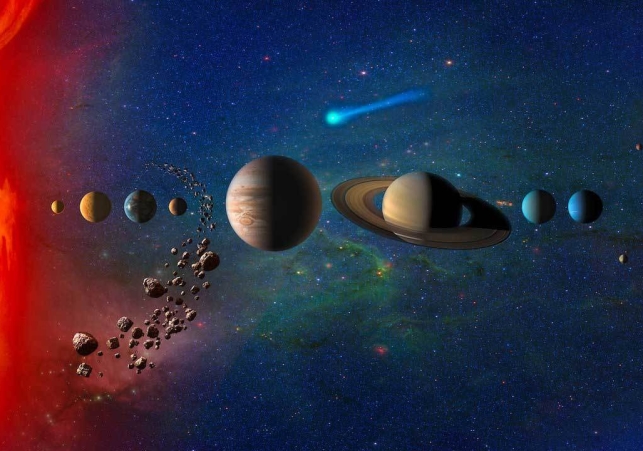
Alien Solar System: 7 Planets, all larger than earth!
Extraordinary alien Solar System unveiled: seven Planets larger than Earth
- By Gurmehar --
- Sunday, 05 Nov, 2023
In a groundbreaking finding, NASA's retired Kepler space telescope has revealed an extraordinary exoplanetary system called Kepler-385. This system stands out as a real cosmic wonder because it consists of seven planets, each larger than Earth but smaller than Neptune, making it unique among its celestial neighbors.
Kepler-385 is part of a recent Kepler catalog, a scientific goldmine that contains nearly 4,400 potential exoplanets, including over 700 multi-planet systems. This remarkable discovery is one of the standout highlights of this catalog.
In-depth exploration of Exoplanets
Jack Lissauer, a research scientist at NASA's Ames Research Center, has played a pivotal role in assembling the most accurate list of Kepler planet candidates and their characteristics. This catalog enables astronomers to delve deeper into the unique features of these exoplanets.
ALSO READ: Putin Ally's warning to Poland: risk of losing statehood looms large
Kepler-385 revolves around a star much like our Sun, but it's about 10% larger and 5% hotter. This system's two inner planets are rocky and slightly bigger than Earth, possibly with thin atmospheres. The other five planets are significantly larger, with a radius about twice the size of Earth, and are likely enveloped in thick atmospheres.
Precision in Exoplanetary data
The ability to provide such detailed information about the Kepler-385 system is a testament to the quality of this latest catalog of exoplanets. Unlike previous catalogs that aimed to estimate the prevalence of planets around other stars, this comprehensive list offers precise data about each system, making incredible discoveries like Kepler-385 possible.
ALSO READ: United States to establish dedicated AI Safety Institute
Kepler's primary mission concluded in 2013, followed by an extended mission known as K2, which continued until 2018. The data collected by Kepler continues to unravel astonishing revelations about our Milky Way galaxy. With the prior confirmation that planets outnumber stars, this new study contributes to a deeper understanding of the diverse worlds beyond our solar system.





